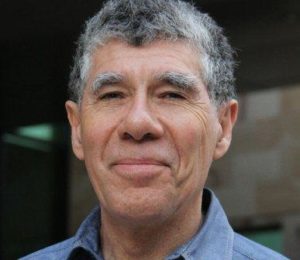
Both institutions and students can struggle to see the relevance of an Indigenous health curriculum, but the benefits for health outcomes of learning to deal with Aboriginal people in a way that gains their trust are enormous, says Professor Dennis McDermott.
Professor McDermott, Director of the Poche Centre for Indigenous Health and Wellbeing at Flinders University, has just been awarded a $250,000 National Senior Teaching Fellowship by the Federal Government’s Office for Learning and Teaching to address issues of resistance to education around Aboriginal health.
An Indigenous health curriculum is increasingly being adopted as part of medical and health education courses across Australia, Professor McDermott said.
“What we are saying is you can’t be a good doctor, nurse or public or allied health professional unless you understand why the Aboriginal person walking through that door is presenting in the way they are presenting: you’ve got to know the back story of the nation, as much as the person.”
But not all students are equally receptive.
Professor McDermott said that many students are initially shocked by the realities of the social, cultural and economic conditions that underlie the chronic health issues among Aboriginal people.
“It’s not that people wilfully don’t want to get the message – it’s just that many are shocked and surprised by what they discover, first about Aboriginal health, and second about their own country,” he said.
Professor McDermott said there is typically a spectrum of response from students.
“Five to 10 per cent understand immediately and come on board with it; there is a second group who are moved by what they find out, and see ways to learn from it; a third group who are completely flummoxed, and feel personally attacked by it, or guilty; and a fourth group who are downright hostile, indifferent and even disruptive,” he said.
“Our job is to find teaching modalities to work across that spectrum that help keep students engaged.”
Professor McDermott said maintaining engagement over a period of time is crucial: “We ask the students to come on a journey with us.”
He said while a broad understanding of the social and economic factors that affect and determine everyone’s health and wellbeing can help to provide context for students, approaches to teaching are evolving too.
“People don’t want to have a whole series of didactic lectures: they want to be more involved with staff and have informal conversations and build relationships,” Professor McDermott said.
“We have to create a safe space where you can have the hard conversations and ask the awkward questions.”
It is also important to counter feelings that Aboriginal health issues are too big or too complex to deal with, Professor McDermott said.
“There are a number of things you can do, whether you’re a podiatrist or a surgeon, in clinical encounters; there are things you can do in a public health or prevention scope; and there are things you can do through advocacy for change.”
The overarching tool in clinical settings, Professor McDermott said, is cultural safety.
Professor McDermott said that while cultural safety includes an appreciation of concepts such as family, reciprocity and spirituality, it doesn’t mean being an expert on individual Aboriginal cultures.
The real message for students is about honesty, respect and building trust, or as Professor McDermott said, “keeping your skills at hand, but taking off the white coat”.
Establishing such trust can hugely increase the efficacy of clinical interventions, Professor McDermott said.
“If you spend the time initially, particularly in listening deeply, then later on you can go anywhere.”
Professor McDermott’s National Senior Teaching Fellowship was one of three Office for Teaching and Learning grants made to Flinders. A $90,000 National Teaching Fellowship to Professor Joe Shapter will fund his project Developing tailored study plans for the new higher education environment, while Associate Professor Julian Grant and a multi-institutional team received $223,000 for their project Developing a national interdisciplinary educational framework for professionals working with children in the early years.

